Rothschildia equatorialis
roths-CHILD-ee-uhMeck-quah-tour-ee-AL-uhs
Rothschild, 1907

Rothschildia equatorialis male, courtesy of Leroy Simon copyright.
TAXONOMY:Superfamily: Bombycoidea, Latreille, 1802 |
DISTRIBUTION:
Rothschildia equatorialis
flies along the western slopes of
the Andes in
Colombia: Choco and Nariono
and probably Valle del Cauca and Cauca; and
Ecuador:
Esmeraldas,
Pichincha: Quito (SO),
Los Rios,
western Imbabura (LR),
Carchi (LR),
Bolivar (LR),
Canar (LR),
Chimborazo,
El Oro (BF), and probably
Manabi and maybe northern
Guayas
at low altitudes (1-200m). This is the biggest of the Rothschildia
species.
Males have a deep orange or mahogany colour while the female is ochre to yellow-brown.
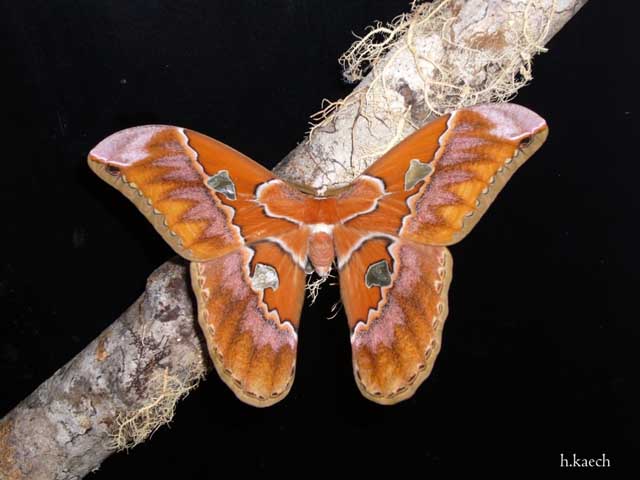
Rothschildia equatorialis, male, Lita, Esmeraldas, Ecuador,
October 3, 2007, e. o., courtesy of Horst Kach.
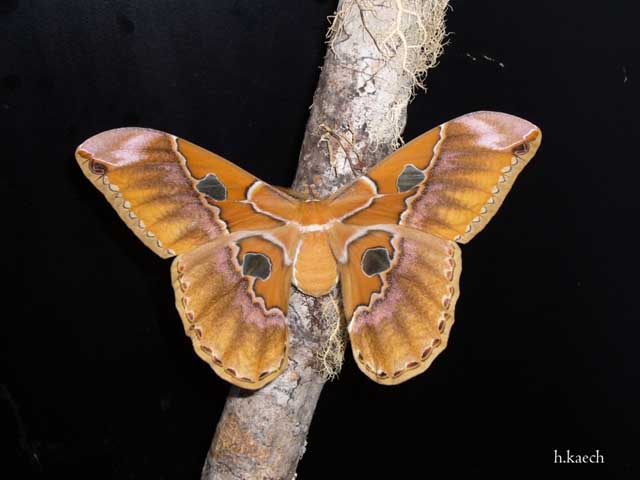
Rothschildia equatorialis, female, Lita, Esmeraldas, Ecuador,
October 3, 2007, e. o., courtesy of Horst Kach.
On the hindwing, the hyaline spot is relatively small and is rounded toward the body. The dark scaling in the cream coloured wedges in the submarginal area of the hindwings is pronounced, almost completely filling the wedges. That darker scaling is redder toward the apex and almost black near the anal angle.
The same areas on the forewing are devoid of dark scaling except for the deep red crescent outside the apical "eyespot".
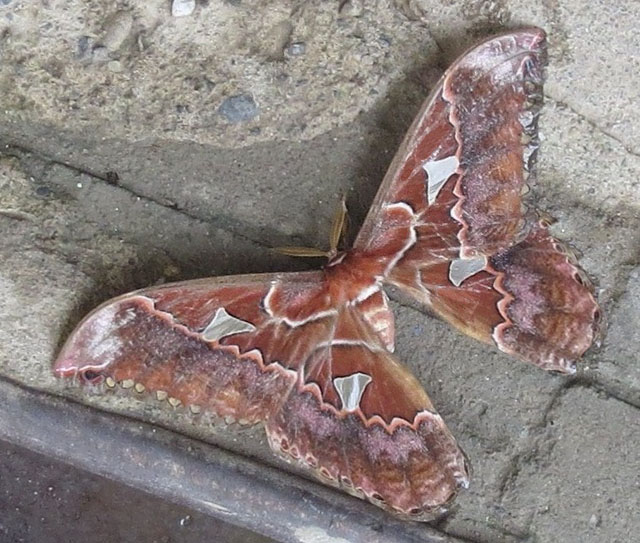
Rothschildia equatorialis , Umbrellabird Lodge, Jocotoco Foundation Buenaventura Reserve,
near Pinas, El Oro, Ecuador,
February 28, 2014, 1200m, id by Bill Oehlke
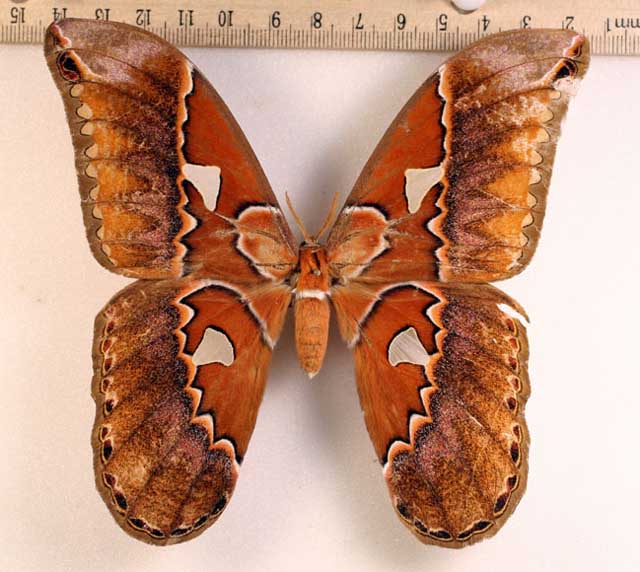
Rothschildia equatorialis male, Pichincha, Ecuador,
courtesy of Kelly Price.
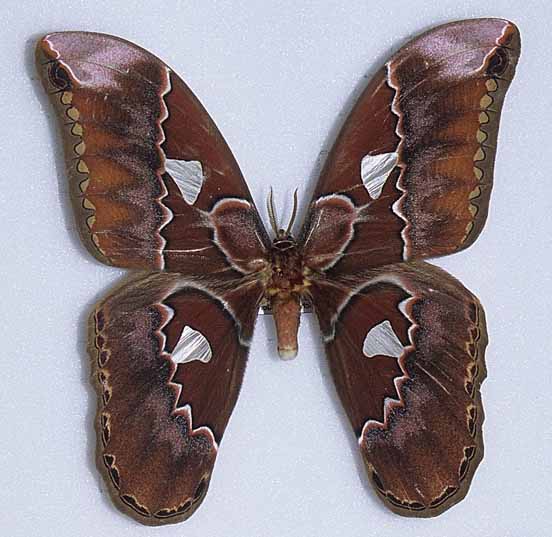
Rothschildia orizaba equatorialis male, courtesy of Hubert Mayer copyright.
FLIGHT TIMES AND PREFERRED FOOD PLANTS:
Equatorialis are on the wing during the rainy season for their respective areas and produce multiple broods. Luigi Racheli reports the onset of the flight season as May in southern Pichincha Province. Lorenzo Comoglio reports a March flight in Alluriquin, Pichincha, Ecuador, based on image sent to him for id.
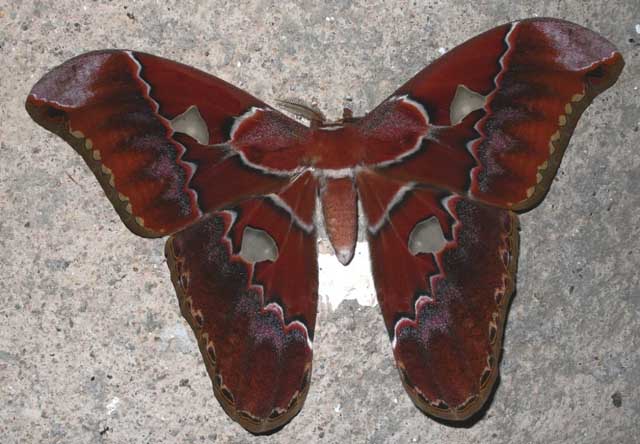
Rothschildia orizaba equatorialis male, Alluriquin Pichincha, Ecuador,
March 2007, 838m, Lorenzo Comoglio for Giampaolo.
In captivity they will accept several foods but the only one that produced full sized adults was cherry. Privet worked but they did not attain full size.
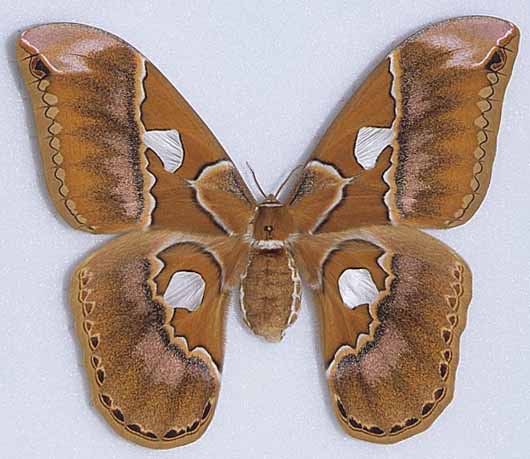
Rothschildia equatorialis female, courtesy of Hubert Mayer copyright.
ECLOSION, SCENTING AND MATING:
Like most of the Rothschildia, except for the diurnal zacateca, this species calls and pairs at night.
EGGS, LARVAE, COCOONS, AND PUPAE:
It is interesting to watch Rothschildia fashion their cocoons. A strong peduncle with a few support silk strands
secures the structure while the larva continues "padding its nest" with a continuous back-and-forth movement of the head.
There are both inner and outer cocoons, each with a relatively long valve to facilitate eclosions.
Larval Food Plants
It is hoped that this alphabetical listing followed by the common name of the foodplant will prove useful. The list is not exhaustive. Experimenting with closely related foodplants is worthwhile.
Ligustrum........ | Privet |
Use your browser "Back" button to return to the previous page.
The pronunciation of scientific names is troublesome for many. The "suggestion" at the top of the page is merely a suggestion.
There are many collectors from different countries whose intonations and accents would be different.
The species name, orizaba, is the name of a large city in the Mexican state of Veracruz.
The subspecies name, equatorialis, is for the distribution near the Equator.